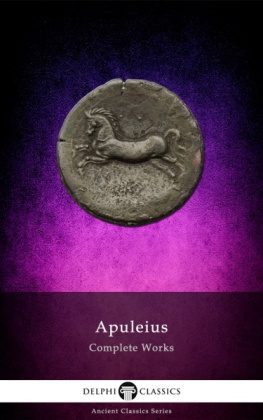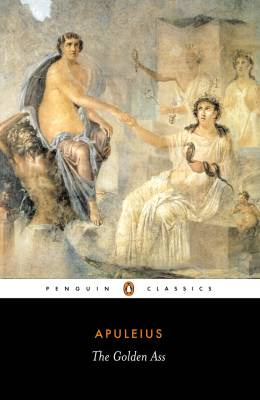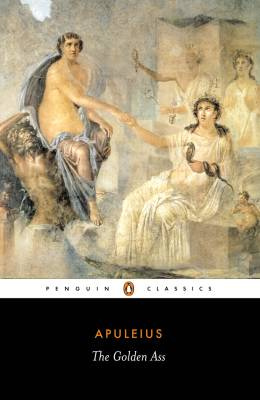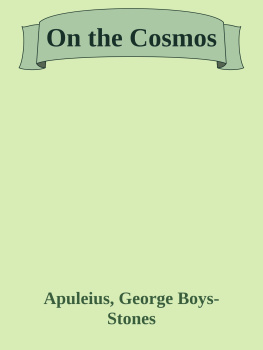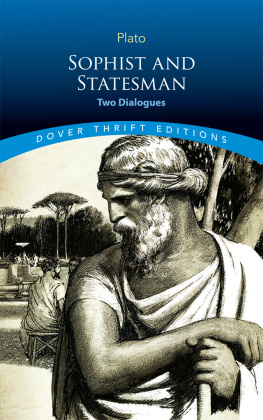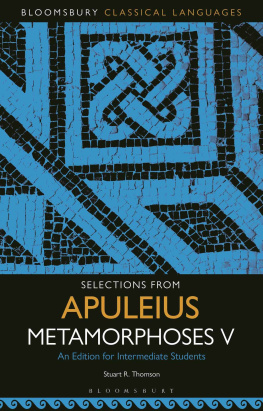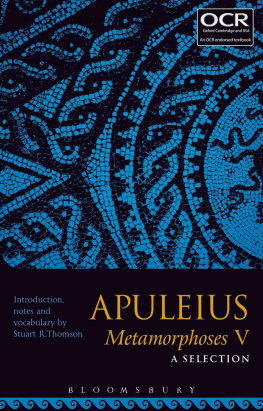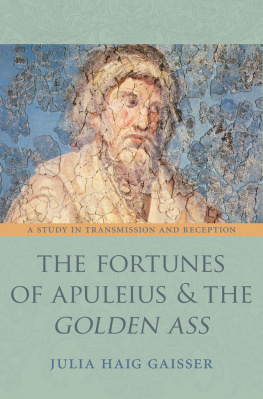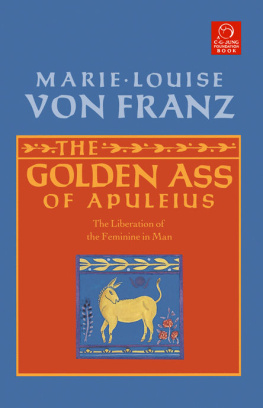Apuleius - Apuleius: a Latin sophist
Here you can read online Apuleius - Apuleius: a Latin sophist full text of the book (entire story) in english for free. Download pdf and epub, get meaning, cover and reviews about this ebook. City: Oxford, year: 2008;2000, publisher: Oxford University Press, genre: Detective and thriller. Description of the work, (preface) as well as reviews are available. Best literature library LitArk.com created for fans of good reading and offers a wide selection of genres:
Romance novel
Science fiction
Adventure
Detective
Science
History
Home and family
Prose
Art
Politics
Computer
Non-fiction
Religion
Business
Children
Humor
Choose a favorite category and find really read worthwhile books. Enjoy immersion in the world of imagination, feel the emotions of the characters or learn something new for yourself, make an fascinating discovery.

- Book:Apuleius: a Latin sophist
- Author:
- Publisher:Oxford University Press
- Genre:
- Year:2008;2000
- City:Oxford
- Rating:5 / 5
- Favourites:Add to favourites
- Your mark:
- 100
- 1
- 2
- 3
- 4
- 5
Apuleius: a Latin sophist: summary, description and annotation
We offer to read an annotation, description, summary or preface (depends on what the author of the book "Apuleius: a Latin sophist" wrote himself). If you haven't found the necessary information about the book — write in the comments, we will try to find it.
Apuleius: a Latin sophist — read online for free the complete book (whole text) full work
Below is the text of the book, divided by pages. System saving the place of the last page read, allows you to conveniently read the book "Apuleius: a Latin sophist" online for free, without having to search again every time where you left off. Put a bookmark, and you can go to the page where you finished reading at any time.
Font size:
Interval:
Bookmark:
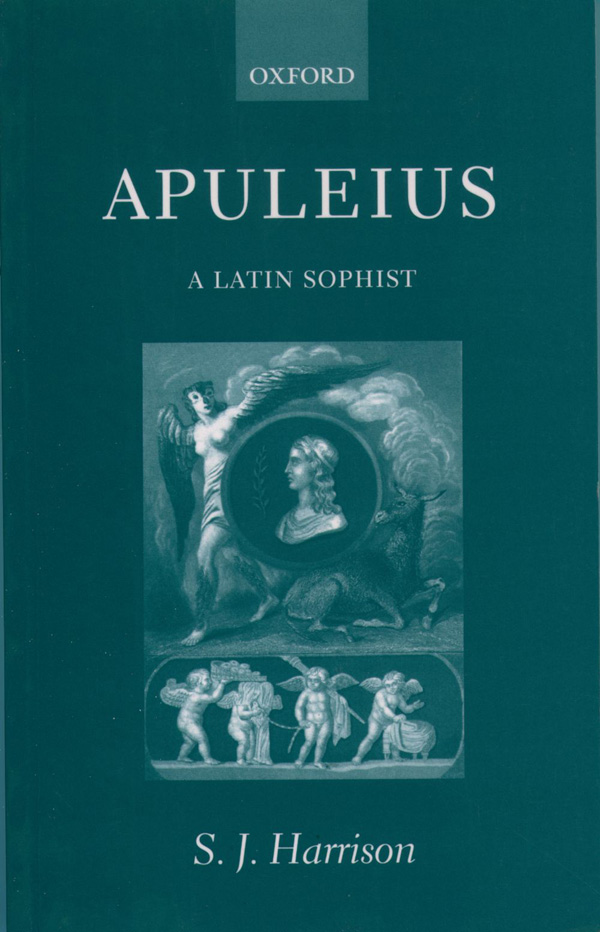
APULEIUS
A Latin Sophist
APULEIUS
A Latin Sophist
S. J. HARRISON

This book has been printed digitally and produced in a standard specification
in order to ensure its continuing availability

Great Clarendon Street, Oxford OX2 6DP
Oxford University Press is a department of the University of Oxford.
It furthers the Universitys objective of excellence in research, scholarship,
and education by publishing worldwide in
Oxford New York
Auckland Cape Town Dar es Salaam Hong Kong Karachi
Kuala Lumpur Madrid Melbourne Mexico City Nairobi
New Delhi Shanghai Taipei Toronto
With offices in
Argentina Austria Brazil Chile Czech Republic France Greece
Guatemala Hungary Italy Japan South Korea Poland Portugal
Singapore Switzerland Thailand Turkey Ukraine Vietnam
Oxford is a registered trade mark of Oxford University Press
in the UK and in certain other countries
Published in the United States
by Oxford University Press Inc., New York
S.J. Harrison 2000
The moral rights of the author have been asserted
Database right Oxford University Press (maker)
Reprinted 2008
All rights reserved. No part of this publication may be reproduced,
stored in a retrieval system, or transmitted, in any form or by any means,
without the prior permission in writing of Oxford University Press,
or as expressly permitted by law, or under terms agreed with the appropriate
reprographics rights organization. Enquiries concerning reproduction
outside the scope of the above should be sent to the Rights Department,
Oxford University Press, at the address above
You must not circulate this book in any other binding or cover
And you must impose this same condition on any acquirer
eISBN 978-0-19-927138-2
PREFACE
This book is a response to the literary pleasures and scholarly problems of reading the texts of Apuleiusdisplay orator and professional intellectual in second-century North Africa, Platonist philosopher, extraordinary stylist, relentless self-promoter, and versatile author of a remarkably diverse body of work, much of which is lost to us. It is written for those able to read Apuleius in Latin, and Apuleian works are accordingly quoted without translation (though I have indicated suitable translations of each work where they exist); Greek is generally translated. I have aimed primarily to provide a literary handbook to the works of Apuleius other than his well-known novel the Metamorphoses or Golden Ass, and secondarily to set these works and the Metamorphoses against their intellectual background; this means not only Apuleius career as a performing intellectual, a sophist, in second-century Roman North Africa, but also the larger contemporary framework of the Greek Second Sophistic.
Apuleius relationship to the Second Sophistic has recently received welcome attention in Sandy (1997), which offers a general assessment of the cultural and literary context; this volume hopes to provide a complementary treatment through a closer concern with the individual Apuleian texts and their interpretation. My interest is primarily literary and literary-historical; some apology is consequently due to specialists in ancient philosophy, who are likely to find my treatments of the philosophical aspects of Apuleius works and of his important role in Middle Platonism relatively superficial, though I hope I have noted recent work on this topic where appropriate. I had originally planned to include chapters on Apuleian language and the reception of Apuleius in later periods, but space pressed, and there are some good treatments of these topics to be found elsewhere (see the bibliographical references given in the introduction to Harrison (1999)).
I have many obligations to record. First, to Robin Nisbet, who first introduced me to the pleasures of reading Apuleian Latin and has always encouraged me in my work, and to Donald Russell, who first suggested that I should write a book on Apuleius. Second, to Hilary OShea and the Oxford University Press, who have patiently encouraged and fostered the project since its inception a decade ago; I am especially grateful to Angela Blackburn for her meticulous copy-editing. Third, to the colleagues and friends who have given generous practical aid: to those who helped in finding bibliographical items or in supplying copies of their own publicationsFred Brenk, Luca Graverini, Harry Jocelyn, Silvia Mattiacci, and Charles Weiss; and especially to those who read and commented on draft chaptersMariateresa Horsfall Scotti, Nicholas Horsfall, Michael Trapp, who also kindly let me see material before publication, and Michael Winterbottom, who has also taken a general interest in the project. I should particularly like to thank Keith Bradley for reading sections of the typescript at a late stage and generously sharing his research in various ways, and Vincent Hunink, both for commenting in detail on several chapters and for facilitating my acquisition of his publications; I am also grateful to Kai Brodersen, Marco Fernandelli, and Antoinette Novara for helping me obtain German, Italian, and French publications respectively. Special gratitude is due to Maaike Zimmerman and her colleagues at Groningen, who have always been keen to welcome me to their splendid centre of Apuleian studies and to share information and ideas.
I should also like to acknowledge more personal debts. My classical colleagues and students (undergraduate and graduate) at Corpus have provided a stimulating, supportive, and tolerant environment over the last decade, for which I am very grateful indeed; it is a real privilege to work in such a community. I am especially grateful to Ewen Bowie, who has so often given me kind advice and aid, and not just on matters of the Second Sophistic. But I should like to dedicate this volume to my family: to my wife Louise, for all her love and help amid her own work, and to our sons Alexander and Freddie, whose coming has much heartened (if not much hastened!) the writing of this book.
Finally, though it was not the main project for my tenure of the award, the last stages of assembling this book have been facilitated by a Leverhulme/British Academy Senior Research Fellowship for 19978, which has given me precious time for research activity, and for which I am extremely grateful.
Corpus Christi College, Oxford S.J.H.
April 1999
CONTENTS
In this paperback reprint I have taken the opportunity to correct a number of slips and misprints (I am grateful to friends and reviewers for spotting them; my thanks to Andrea Cucchiarelli, Costas Panayotakis, and Michael Winterbottom), to update some WWW locators (on p. 211 of the original; my thanks to Greg Hays), and to add brief addenda (which appear at the end of the book; my thanks to the publisher) on some significant recent publications.
Corpus Christi College, Oxford S.J.H.
April 2003
Apol.Apologia
DDSDe Deo Socratis
Flor.Florida
Met.Metamorphoses
Mu.De Mundo
Pl.De Platone
Apuleius in Context: Life,
Background, Writings
1. LIFE AND BACKGROUND
Information on the life of Apuleius may be recovered from two main sourceshis own works, and the writings of Augustine, another writer from North Africa to whom Apuleius works were clearly familiar.is obscure: Apuleius relates (Apol. 24) that at the time of the Third Punic War it belonged to the dominions of the Numidian king Syphax, who after some indecision joined Carthage in the struggle against Rome. On the Carthaginian defeat in 203 BC, it passed to the great Massinissa, ally of Scipio, whose descendants ruled as kings of Numidia until 46 BC. Then the current monarch, Juba I, a Pompeian in the civil war, was expelled by Caesar, who set up the Roman province of Africa Nova in place of the former independent kingdom, to add to the existing Roman province of Africa based on Carthage. After an unsuccessful return to client-kingdom status under Juba II, proteg of Augustus, in 2925 BC, Numidia was united with the older province of Africa to form Africa Proconsularis, an arrangement which lasted until repartition by Septimus Severus. Madauros itself was re-settled in the Flavian period as a Roman
Font size:
Interval:
Bookmark:
Similar books «Apuleius: a Latin sophist»
Look at similar books to Apuleius: a Latin sophist. We have selected literature similar in name and meaning in the hope of providing readers with more options to find new, interesting, not yet read works.
Discussion, reviews of the book Apuleius: a Latin sophist and just readers' own opinions. Leave your comments, write what you think about the work, its meaning or the main characters. Specify what exactly you liked and what you didn't like, and why you think so.

